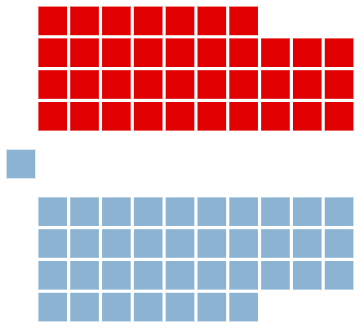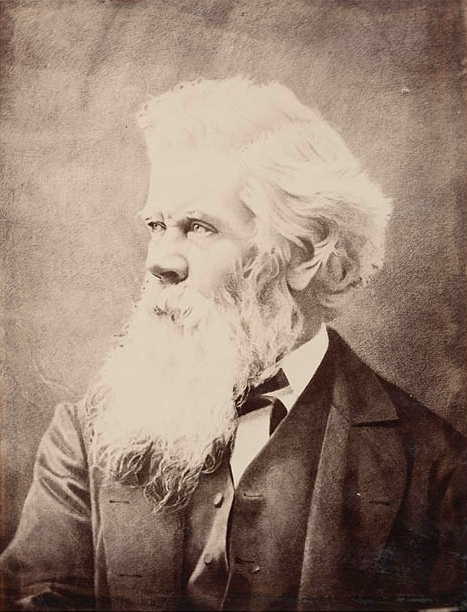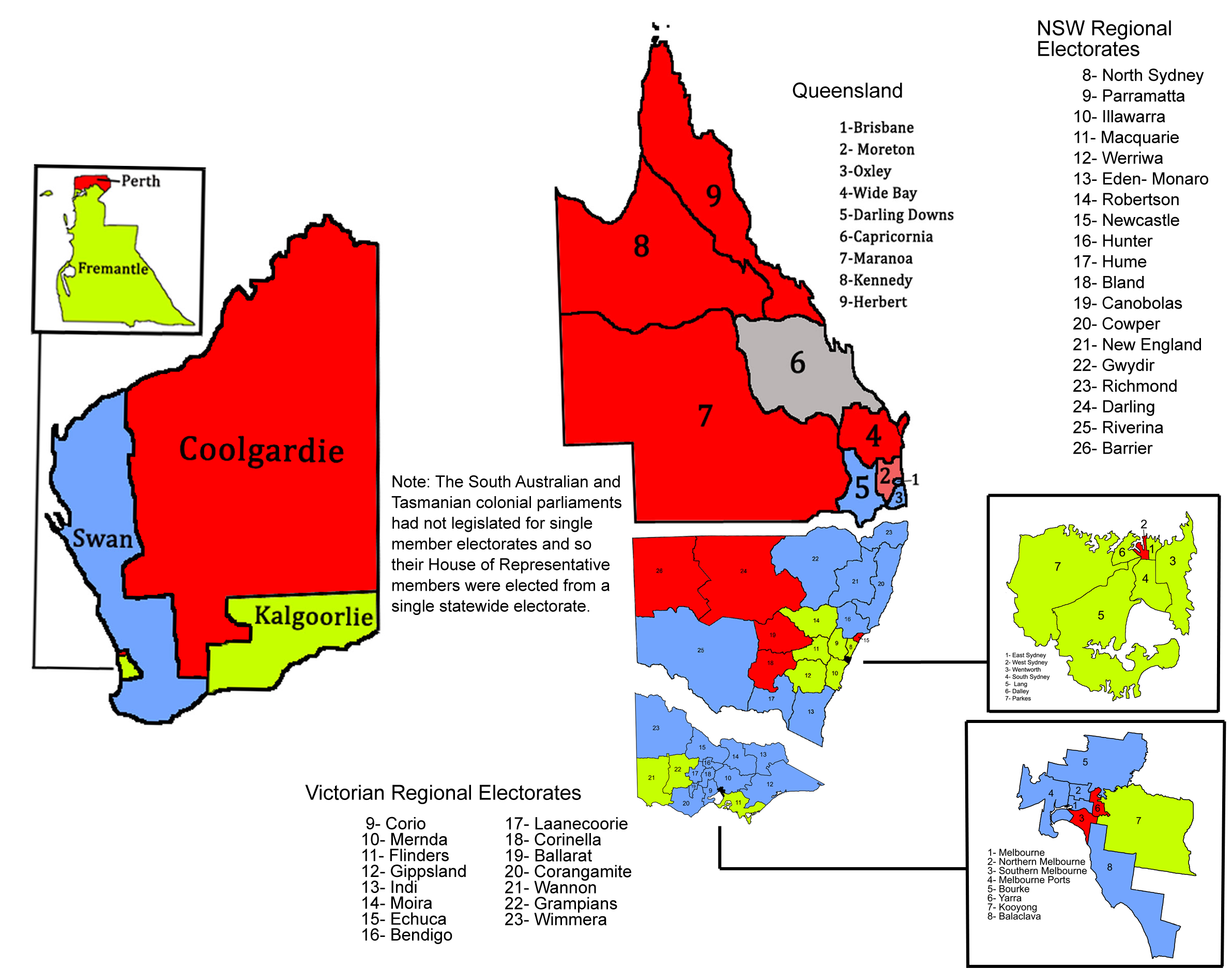|
John Singleton Clemons
John Singleton Clemons (24 March 1862 – 10 November 1944) was an Australian lawyer and politician. He served as a Senator for Tasmania from 1901 to 1914, representing the Free Trade Party until 1909 and then the Liberal Party. He served as an honorary minister in the government of Joseph Cook from 1913 to 1914. Early life Clemons was born on 24 March 1862 in Launceston, Tasmania. He was the oldest of eight children born to Anne Alicia (née Tucker) and John Nicholas Clemons. His father was a schoolteacher from Devon, England, who had been recruited to the colony in 1855. Clemons began his education at the public school in Evandale before going on to Launceston Church Grammar School. In 1880, he was awarded a Tasmanian government scholarship to attend the University of Oxford, where he studied law. After being called to the bar in England, he returned to Tasmania and practised law in Launceston; he also had "wide mining interests". Politics Clemons unsuccessfully stood for th ... [...More Info...] [...Related Items...] OR: [Wikipedia] [Google] [Baidu] |
The Honourable
''The Honourable'' (British English) or ''The Honorable'' (American English; see spelling differences) (abbreviation: ''Hon.'', ''Hon'ble'', or variations) is an honorific style that is used as a prefix before the names or titles of certain people, usually with official governmental or diplomatic positions. Use by governments International diplomacy In international diplomatic relations, representatives of foreign states are often styled as ''The Honourable''. Deputy chiefs of mission, , consuls-general and consuls are always given the style. All heads of consular posts, whether they are honorary or career postholders, are accorded the style according to the State Department of the United States. However, the style ''Excellency'' instead of ''The Honourable'' is used for ambassadors and high commissioners. Africa The Congo In the Democratic Republic of the Congo, the prefix 'Honourable' or 'Hon.' is used for members of both chambers of the Parliament of the Democratic Repu ... [...More Info...] [...Related Items...] OR: [Wikipedia] [Google] [Baidu] |
Call To The Bar
The call to the bar is a legal term of art in most common law jurisdictions where persons must be qualified to be allowed to argue in court on behalf of another party and are then said to have been "called to the bar" or to have received "call to the bar". "The bar" is now used as a collective noun for barristers, but literally referred to the wooden barrier in old courtrooms, which separated the often crowded public area at the rear from the space near the judges reserved for those having business with the court. Barristers would sit or stand immediately behind it, facing the judge, and could use it as a table for their briefs. Like many other common law terms, the term originated in England in the Middle Ages, and the ''call to the bar'' refers to the summons issued to one found fit to speak at the "bar" of the royal courts. In time, English judges allowed only legally qualified men to address them on the law and later delegated the qualification and admission of barristers t ... [...More Info...] [...Related Items...] OR: [Wikipedia] [Google] [Baidu] |
1913 Australian Federal Election
The 1913 Australian federal election was held in Australia on 31 May 1913. All 75 seats in the House of Representatives, and 18 of the 36 seats in the Senate were up for election. The incumbent Labor Party, led by Prime Minister Andrew Fisher, was defeated by the opposition Commonwealth Liberal Party under Joseph Cook. The new government had a majority of just a single seat, and held a minority of seats in the Senate. It would last only 15 months, suffering defeat at the 1914 election. The 1913 election was held in conjunction with six referendum questions, none of which were carried. According to David Day, Andrew Fisher's biographer, "it was probably the timing of the referenda that was most responsible for the disappointing election result" for the Labor Party. Results House of Representatives ---- ;Notes * Three members were elected unopposed – one Liberal and two Labor. Senate Seats changing hands * Members listed in italics did not contest their seat at t ... [...More Info...] [...Related Items...] OR: [Wikipedia] [Google] [Baidu] |
1906 Australian Federal Election
The 1906 Australian federal election was held in Australia on 12 December 1906. All 75 seats in the House of Representatives, and 18 of the 36 seats in the Senate were up for election. The incumbent Protectionist Party minority government led by Prime Minister Alfred Deakin retained government, despite winning the fewest House of Representatives votes and seats of the three parties. Parliamentary support was provided by the Labour Party led by Chris Watson, while the Anti-Socialist Party (renamed from the Free Trade Party), led by George Reid, remained in opposition. Watson resigned as Labour leader in October 1907 and was replaced by Andrew Fisher. The Protectionist minority government fell in November 1908 to Labour, and a few days later Reid resigned as Anti-Socialist leader, being replaced by Joseph Cook. The Labour minority government fell in June 1909 to the newly formed Commonwealth Liberal Party led by Deakin; this Party was formed on a shared anti-Labour platform as a ... [...More Info...] [...Related Items...] OR: [Wikipedia] [Google] [Baidu] |
Canberra
Canberra ( ) is the capital city of Australia. Founded following the federation of the colonies of Australia as the seat of government for the new nation, it is Australia's largest inland city and the eighth-largest city overall. The city is located at the northern end of the Australian Capital Territory at the northern tip of the Australian Alps, the country's highest mountain range. As of June 2021, Canberra's estimated population was 453,558. The area chosen for the capital had been inhabited by Indigenous Australians for up to 21,000 years, with the principal group being the Ngunnawal people. European settlement commenced in the first half of the 19th century, as evidenced by surviving landmarks such as St John's Anglican Church and Blundells Cottage. On 1 January 1901, federation of the colonies of Australia was achieved. Following a long dispute over whether Sydney or Melbourne should be the national capital, a compromise was reached: the new capital would be buil ... [...More Info...] [...Related Items...] OR: [Wikipedia] [Google] [Baidu] |
Trans-Australian Railway
The Trans-Australian Railway, opened in 1917, runs from Port Augusta in South Australia to Kalgoorlie in Western Australia, crossing the Nullarbor Plain in the process. As the only rail freight corridor between Western Australia and the eastern states, the line is strategically important. The railway includes the world's longest section of completely straight track. The inaugural passenger train service was known as the ''Great Western Express''; later, it became the ''Trans-Australian''. , two passenger services use the line, both of them experiential tourism services: the ''Indian Pacific'' for the entire length of the railway, and ''The Ghan'' between Port Augusta and Tarcoola, where it leaves the line to proceed north to Darwin. History In 1901, the six Australian colonies federated to form the Commonwealth of Australia. At that time, Perth, the capital of Western Australia, was isolated from the remaining Australian states by thousands of miles of desert terrain and ... [...More Info...] [...Related Items...] OR: [Wikipedia] [Google] [Baidu] |
Australian Labor Party
The Australian Labor Party (ALP), also simply known as Labor, is the major centre-left political party in Australia, one of two major parties in Australian politics, along with the centre-right Liberal Party of Australia. The party forms the federal government since being elected in the 2022 election. The ALP is a federal party, with political branches in each state and territory. They are currently in government in Victoria, Queensland, Western Australia, South Australia, the Australian Capital Territory, and the Northern Territory. They are currently in opposition in New South Wales and Tasmania. It is the oldest political party in Australia, being established on 8 May 1901 at Parliament House, Melbourne, the meeting place of the first federal Parliament. The ALP was not founded as a federal party until after the first sitting of the Australian parliament in 1901. It is regarded as descended from labour parties founded in the various Australian colonies by the emerging la ... [...More Info...] [...Related Items...] OR: [Wikipedia] [Google] [Baidu] |
Protectionist Party
The Protectionist Party or Liberal Protectionist Party was an Australian political party, formally organised from 1887 until 1909, with policies centred on protectionism. The party advocated protective tariffs, arguing it would allow Australian industry to grow and provide employment. It had its greatest strength in Victoria and in the rural areas of New South Wales. Its most prominent leaders were Sir Edmund Barton and Alfred Deakin, who were the first and second prime ministers of Australia. History The party was initially centred on New South Wales, where its leaders were George Dibbs and William Lyne. It dominated New South Wales colonial politics before federation. It first contested the 1887 New South Wales election. On the commencement of the Commonwealth of Australia, Governor-General-designate, The 7th Earl of Hopetoun, appointed Edmund Barton (after the Hopetoun Blunder), leader of the Protectionist Party, to head a caretaker government from 1 January 1901 ... [...More Info...] [...Related Items...] OR: [Wikipedia] [Google] [Baidu] |
Whip In The Australian Senate
Whips have managed business and maintained party discipline for Australia's federal political parties in the Senate since Federation. The term has origins in the British parliamentary system. Though the Remuneration Tribunal and parliamentary website refer to the senior Labor and Liberal whips as "chief" whips and their junior whips as "deputy whips", the parties tend to refer to the senior whips as "whips" when announcing their officeholders to the Senate. A number of Senate whips have gone on to serve as ministers, and several as Leader of the Government or Leader of the Opposition in the Senate. Australian Labor Party In addition to those below, Kay Denman served as a deputy whip from 18 September to 31 December 1995, a period when one of Labor's two whips was on leave of absence while conducting parliamentary business overseas. ;Notes Coalition Liberal Party of Australia ;Notes National Country Party/National Party of Australia Australian Greens Western A ... [...More Info...] [...Related Items...] OR: [Wikipedia] [Google] [Baidu] |
Australian Free Trade And Liberal Association
The Free Trade Party which was officially known as the Australian Free Trade and Liberal Association, also referred to as the Revenue Tariff Party in some states, was an Australian political party, formally organised in 1887 in New South Wales, in time for the 1887 colony election, which the party won. It advocated the abolition of protectionism, especially protective tariffs and other restrictions on trade, arguing that this would create greater prosperity for all. However, many members also advocated use of minimal tariffs for government revenue purposes only. Its most prominent leader was George Reid, who led the Reid Government as the fourth Prime Minister of Australia (1904–05). In New South Wales it was succeeded by the Liberal and Reform Association in 1902, and federally by the Anti-Socialist Party in 1906. In 1909, the Anti-Socialist Party merged with the Protectionist Party to form the Commonwealth Liberal Party. History The party was centred on New South Wales, w ... [...More Info...] [...Related Items...] OR: [Wikipedia] [Google] [Baidu] |
1901 Australian Federal Election
The 1901 Australian federal election for the inaugural Parliament of Australia was held in Australia on Friday 29 March and Saturday 30 March 1901. The elections followed Federation and the establishment of the Commonwealth of Australia on 1 January 1901. All 75 seats in the Australian House of Representatives, six of which were uncontested, as well as all 36 seats in the Australian Senate, were up for election. After the initial confusion of the Hopetoun Blunder, the first Prime Minister of Australia, Edmund Barton, went into the inaugural 1901 federal election as the appointed head of a Protectionist Party caretaker government. While the Protectionists came first on votes and seats, they fell short of a majority. The incumbent government remained in office with the parliamentary support of the Labour Party, who held the balance of power, while the Free Trade Party formed the opposition. A few months prior to the 1903 election, Barton resigned to become a founding membe ... [...More Info...] [...Related Items...] OR: [Wikipedia] [Google] [Baidu] |






